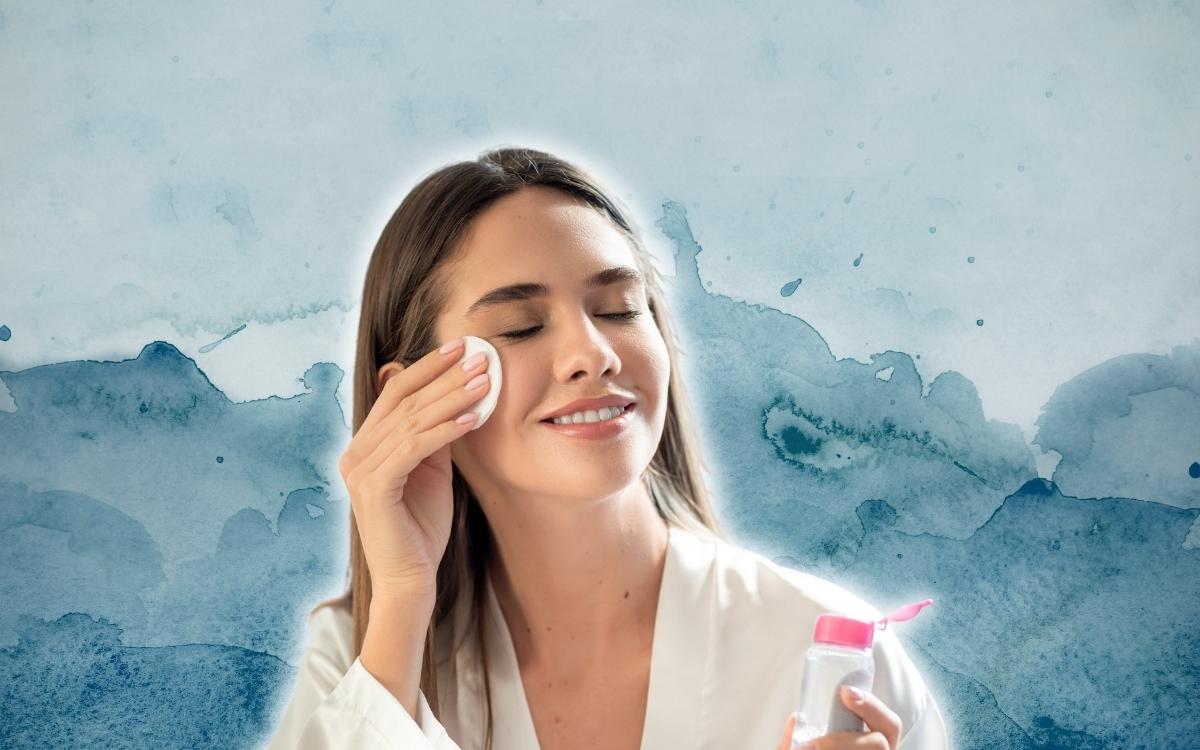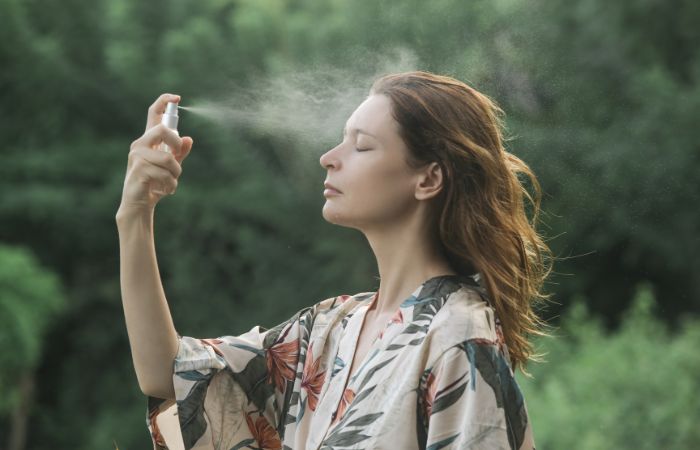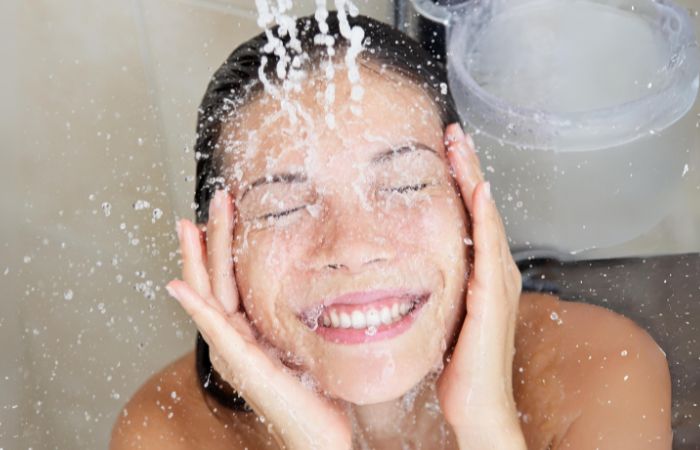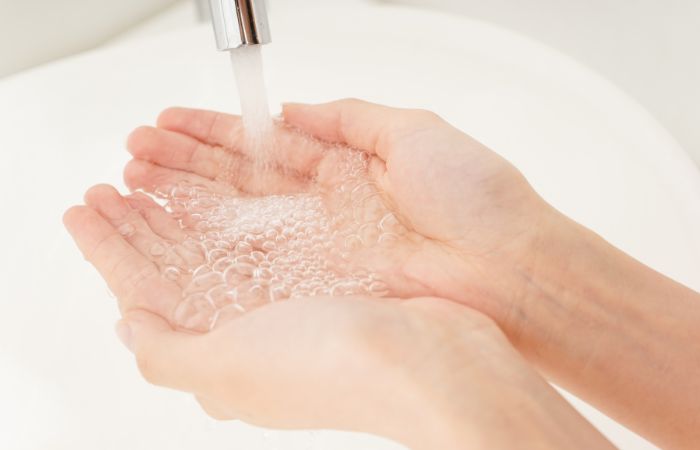The demand for a youthful, glowing look has been an ongoing pursuit of beauty enthusiasts for decades. There is a vast array of skin care products currently on the market that all proclaim to offer a luminous appearance and complexion. Although these products do work in different ways to help you achieve a radiant glow, there is one thing most of them have in common: hydration.

The powers of hydration are essential for continued skin health and a youthful appearance. This article will discuss the science behind how hydration benefits your skin as well as provide several constructive measures that help maintain a properly hydrated and glowing complexion.
Understanding Hydration And Your Skin
The body’s largest organ, the skin, works as a barricade, obstructing entry to harsh environmental stressors and damage. Skin consists of numerous layers, with its outer layer in particular providing crucial support in moisture retention.
Proper skin hydration typically involves two primary components: water and lipid (fatty acids) content. Lipids form a protective barrier for the skin’s outermost layer, restricting excessive water loss and locking moisture within the skin. Insufficient moisture in the lipid barrier can result in dehydrated skin that looks and feels dry, dull, and flaky.

8 Daily Skin Hydration Practices
Now that we have established the importance of hydration, we shall examine eight daily steps you can take for improving the look and glow of your skin.
Topical Hydration
Find a moisturizer with high-quality ingredients that suit your specific skin type, and apply daily after cleansing to help retain moisture.
Internal Hydration
For a glowing outward appearance, you also need to hydrate your skin from within. Drinking water daily is a direct way to secure the vital hydration required to support your skin.
Eat Water-Rich Foods
Supercharging your diet with a plethora of foods containing a high water content can work wonders in hydrating your body. Watermelon, cantaloupe, lettuce, broths, and zucchini all contribute significant amounts of water to your diet and help maintain the skin’s vulnerable lipid barrier.
IV Hydration Therapy
On-demand mobile IV therapies are available in many cities around the world, with in-home treatments and wellness services at your fingertips. IV therapies deliver fast hydration to the body with modern and convenient treatments administered by registered nurses in your comfort zone. If you are looking for an efficient way to return hydrational balance to your body, a revitalizing IV drip in London is just a call or click away.
Gentle Exfoliation
Consistent exfoliation can be helpful in the removal of dead skin cells, allowing proper absorption of moisturizing products. However, be careful to exfoliate safely to avoid causing harm to the skin, and do not overdo it, as gently exfoliating once or twice weekly should suffice.
Humidifiers
Individuals living in an especially dry climate should consider adding a humidifier to their home to add crucial moisture to the surrounding air and reduce the risk of dehydrated skin.
Hydrating Face Masks
Pamper yourself with a weekly hydrating mask containing beneficial ingredients like aloe vera or cucumber, which can provide a quick boost of hydration to your body and skin.
Skip the Harsh Cleansers
Many cleansers contain harsh ingredients that strip essential oils from the surface layer of your skin, leaving behind a dehydrated and dried-out appearance. Find a cleanser that is gentle on your face and suits your skin type to maintain your skin’s delicate moisture balance.

How Hydration Benefits Your Skin
Preserving optimal skin hydration offers a vast array of advantages for your skin’s overall health and appearance. Your skin has a glowing and smooth look when properly hydrated, increasing its natural bright and vibrant appearance. Adequately hydration also helps smooth out the skin’s surface, minimizing age spots, fine lines, and wrinkles, revealing a softer and more elastic texture.
Well-hydrated skin is less prone to produce excessive oil, countering the risks of clogged pores, acne, and redness. A healthy lipid barrier can more capably defend against the harms of UV radiation and external pollutants, which helps maintain continued skin health and vitality.
External Factors Affecting Skin Hydration
Environmental Effects on Skin Hydration
The environment plays a significant role in skin hydration. Factors such as temperature, humidity, and pollution can impact the skin’s ability to retain moisture. In dry or arid climates, the lack of humidity can lead to moisture evaporation from the skin, causing dryness and dehydration. Conversely, in highly humid conditions, excess moisture in the air can sometimes make the skin appear hydrated, but it may also disrupt the skin’s natural balance, potentially leading to issues like clogged pores or exacerbating skin conditions.
Furthermore, exposure to extreme temperatures, such as harsh sunlight or cold weather, can compromise the skin’s barrier function. Prolonged sun exposure can cause water loss from the skin, leading to dehydration and premature aging. On the other hand, cold weather can strip the skin of its natural oils, resulting in dryness and flakiness.

Seasonal Skincare Adjustments
Adapting skincare routines according to seasonal changes is crucial for maintaining optimal skin hydration. During winter, when the air tends to be drier, adjusting to a richer moisturizer or incorporating products with ingredients like hyaluronic acid and ceramides can help combat dryness. In contrast, in the summer months, lighter, water-based products can prevent pore-clogging while providing sufficient hydration. Understanding the seasonal shifts and adjusting skincare regimens accordingly can significantly impact the skin’s hydration levels.
The Impact of Lifestyle Choices on Skin Hydration
Lifestyle choices, including habits and daily activities, can have a profound impact on skin hydration. Factors such as smoking, excessive alcohol consumption, and poor dietary habits can contribute to dehydrated skin. Smoking, for instance, constricts blood vessels, reducing blood flow and oxygen supply to the skin, resulting in a lackluster and dehydrated complexion. Similarly, excessive alcohol intake can lead to dehydration throughout the body, including the skin.
Moreover, the use of harsh soaps or hot water during showers can strip the skin of its natural oils, leading to moisture loss. Opting for milder cleansers and lukewarm water can help maintain the skin’s natural hydration levels.
Last Words
Hydration holds the critical key needed to unlock a new world of potential for skin health and sustain an age-defying, radiant look and complexion. Additionally, preserving moisture within your skin barrier by utilizing both internal and external methods allows you to see and feel the advantages of smooth, radiant, youthful skin for years to come.
Successfully implementing these beneficial hydration tips into your daily skincare regimen is a proactive start along the pathway to the radiant look complete with glowing, youthful skin you’ve been longing for. The health, look, and feel of your skin is a long-term investment in yourself; being consistent is crucial for the continued care of your skin.






